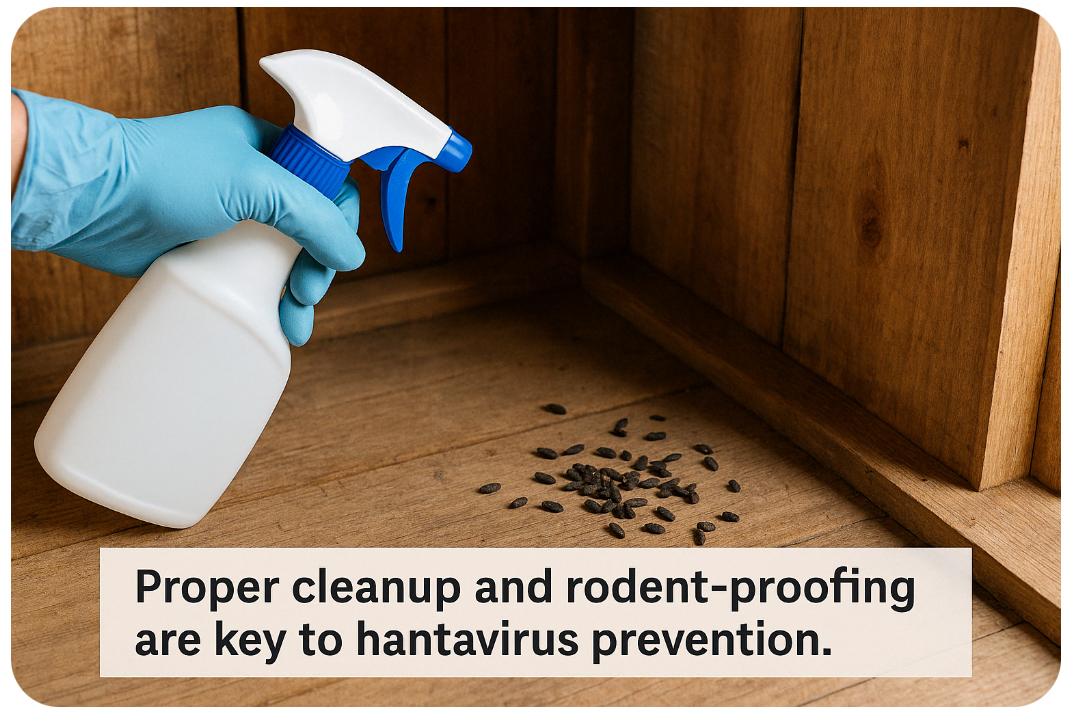What You Need to Know About Hantavirus, Prevention Tips, and How to Keep Pests Away
LOS ANGELES—A recent high-profile hantavirus case has thrust this rare but deadly disease back into the national spotlight. Though infrequent, hantavirus pulmonary syndrome can be fatal—and the tragic death of Betsy Arakawa wife of the late actor Gene Hackman) underscored just how serious rodent-borne illnesses can be. Health officials confirmed that Arakawa’s death was linked to hantavirus, with rodent infestation evidence found in outbuildings on their New Mexico property.
While the illness remains uncommon, its impact can be devastating. Awareness, prevention, and early action are key to keeping households safe.
What is Hantavirus?
Hantavirus is a severe respiratory illness caused by exposure to infected rodent droppings, urine, or saliva. The virus can become airborne when contaminated dust is disturbed—especially in closed, undisturbed places like sheds, garages, attics, and storage units.
The deer mouse is the most common carrier in North America. There is no cure or vaccine, and the illness can progress rapidly.
Symptoms to Watch For
Early symptoms mimic the flu, making diagnosis difficult without known exposure:
- Fever and chills
- Muscle aches (especially in hips and back)
- Fatigue and dizziness
- Headache, nausea, or vomiting
Within days, it can escalate to:
- Shortness of breath
- Cough and chest tightness
- Fluid in the lungs and respiratory failure
If you experience these symptoms after potential rodent exposure, seek immediate medical help.
Protecting Your Home and Family
- Seal Entry Points
- Close all gaps and holes larger than ¼ inch around your home.
- Install weather stripping and mesh screens over vents and chimneys.
- Keep bushes and wood piles away from exterior walls.
- Practice Safe Food Storage
- Store human and pet food in rodent-proof containers.
- Clean up crumbs and spills quickly.
- Take out garbage regularly and use sealed bins.
- Clean Rodent-Contaminated Areas Safely
- Never sweep or vacuum rodent droppings—it can release virus particles into the air.
- Spray the area with disinfectant (1 part bleach to 10 parts water), let it soak, then wipe with paper towels.
- Wear gloves and dispose of waste in sealed bags.
- Monitor Outbuildings and Vehicles
- Check garages, sheds, RVs, and storage spaces, especially after long periods of disuse.
- Air them out before entering, and clean with precautions if droppings or nests are found.
- Call in Professionals if Needed
- For signs of infestation—such as nests, gnawed materials, or droppings—consider hiring a licensed pest control service.
A Preventable Threat
While the virus is rare, it is deadly—and can strike even in seemingly clean, rural, or upscale environments. The case involving the Hackmans has served as a stark reminder that rodent control and safe cleaning practices are essential.
As warmer months increase rodent activity, public health officials urge everyone to stay vigilant. Simple preventive steps can save lives.





